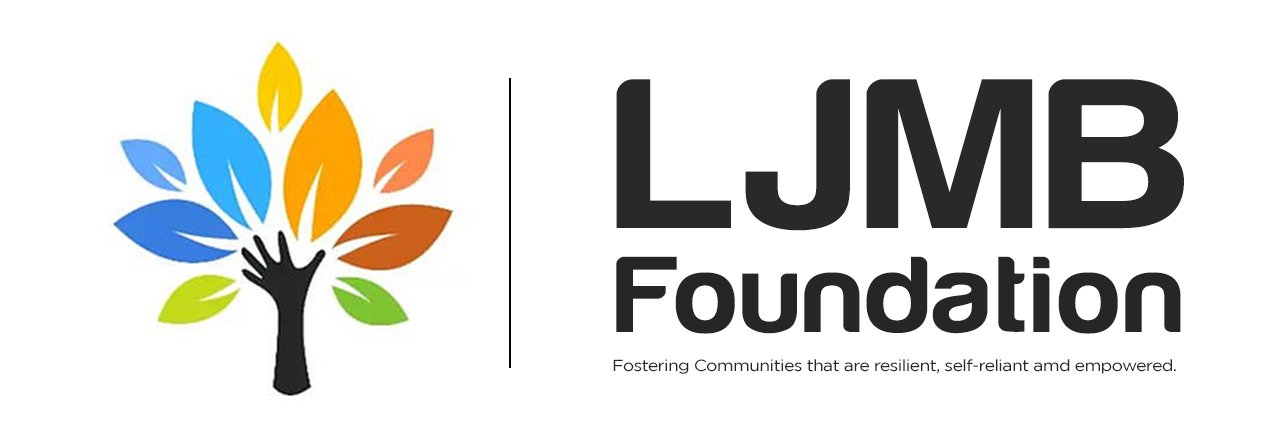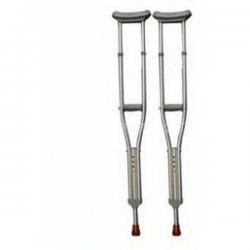There are 2 big global events taking place this week worthy talking about on this blog. The World AIDS Day which is being observed today on December 1st and the International Day of Persons with Disabilities which will be observed on December 3rd this year. Considering the time and space available for this blog as well as the attention that AIDS has in Malawi, I have decided to dedicate this week's article to the Persons with Disabilities in Malawi.
…Martin's story…
Martin is a person I got to know by the virtue of this blog. During one of our conversations, he asked me to put forward his story for others to learn from it and understand better his world. It is that plea that helped me in deciding on which topic to talk about this week. I am therefore going to share with you his words, views and world in this article.
Middle-aged Martin is a a disabled person who uses 2 walking sticks for disabilities to aid his mobility. Regardless of his disability and lack of resources, he managed to finish his high school. With the help of the Ministry of Youth through UNICEF and a politician from his his area, he became a welder. Through his hard work, he is able to take care of his family and at the moment he is building a brick house with corrugated iron roofing sheets.
His welding job is going on well though sometimes he is unable to fulfill the needs of his customers due to lack of welding tools like grinders which he does not possess. According to Martin, lack of these tools is inhibiting his progress in his profession. And that is his main wish, having those tools to be able to satisfy his customers and progress.
Martin thinks that the most important thing for the disabled people in Malawi is empowerment. He believes that if the government can put in place programmes which enables and promote education amongst the disabled people (like providing them with tuition fee, books, etc) and giving them life skills trainings (like the welding, tailoring, etc) it would help them a lot. This would promote self-reliance amongst the disabled. They would not be seen as burdens to the society (a view that Martin totally disagrees). At the same time, Martin would like to demonstrate to other disabled people in Malawi that being disabled is not a reason to be a beggar. There a lot of things that one can still do and prosper as seen in his case. The disability should not hinder a person's development.
…reality of the disabled in Malawi…
Though the story of Martin is a happy one, for most people with disabilities it is not like that. They are often regarded as a family burden and a shame than an equal family member. Possibilities to go to school are minimised due to a number of factors like lack of mobility equipments or proper learning tools. As a result, disabled people in Malawi are most likely to be illiterate leading to higher unemployment rate compared to those who are not disabled. Their childhood is usually a tough one as they find it difficult to mix and play with the other kids as they are at times ridiculed. Taking care of the simple things like dressing up, walking on the street or bathing is a chore that they normally rely on someone. And most are not lucky enough to get support from organisations like Martin did. Some are even abused by the people around them. It is generally a sad story for most disabled people in Malawi (Tembo 2014, Crum 2014).
…my reaction…
I was amazed and touched with Martin's words. Amazed at the way how he looks at himself, life in general, his strength and thirst to succeed regardless of what most of us might call a limitation. I was touched that he asked me to put forward his message, to let others know that if we utilise what we have, we can always make it.
It made me reflect on my previous encounters with disabled people in Lilongwe and my perception of the disabled generally. There are few places in Lilongwe where disabled people are frequently seen. For example, alongside the road next to Lilongwe Town Hall and Lilongwe Sanctuary as well as around the mosque close to the main bus station.
You will agree with me that most of the times you pass by these places, especially if you are driving and you end up stopping on the traffic lights, you are bombarded with beggars who are actually disabled trying to make a living from begging on the streets of Lilongwe. Some of them are accompanied by someone as a guide for example a child or relative while some are solo.
Most of the times it has crossed my mind too to question why these people are on the streets. Why nothing is being done to help them out to sustain themselves. More than often I have heard that most of them prefer to be on the streets as beggars because they earn more. Sometimes when the city moves them to a specific location they run away and end up back on the streets.
As much as I understand that we need to give to those in need, I therefore end up questioning if this is the right away of giving. Because it looks like we are promoting begging and not self-sustainability.
It is this picture that leads most of us in believing that the majority of those who are disabled in Malawi are beggars. A case that Martin would like to correct.
Apart from meeting disabled people in the above mentioned places, I don't remember having a disabled person at my school or workplace. It's like we do not have disabled people in Malawi.
…statistics…
Which is a bit strange because according to WHO (ca. 2015) 10% of the world's population is disabled and 20% of the world's poor is disabled (Malawi is one of the poorest countries in the world). However, the Nationals Statistics Office (2008) indicate that 4% of the Malawian population is poor and the majority is in the rural areas. With most of them being denied same access to education and employment as their counterparts (Tembo 2014), it might be the reason why I have been unable to meet disabled people in Lilongwe at other places than the ones mentioned above.
…solution…
There are a lot of things that our government has to do to better the lives of the disabled in the country starting from education, human rights, rehabilitation centres, roads, buildings, public transports, etc. But as a nation we do also have role to play to ensure that we accommodate the disabled in our societies. We need to try our best to find room for them, to make their lives more comfortable. We need to believe in their capabilities and not to sideline them just because they are disabled. Remember, being disabled does not mean that a person is of a less value as a human being or incapable as seen by Martin's case above.
Education is closely linked to a better future. An educated nation has a higher chance of being more developed than an illiterate nation. We need therefore to find ways to include the disabled people in our education system. They should feel welcome and should have all the necessary support to succeed.
It is high time that organisations and companies employ at least 1 disabled person. Am not trying to say that they should be employed just because they are disabled, but if they meet the criteria and you have to choose between someone who is not disabled and one who is, it might be better to take the disabled one. Maybe we can even have a specific percentage of employees in a company stipulated by law which should be disabled. I strongly believe that if each and every government institution, department and other private companies or charity organisations employ at least 1 disabled person, it will make a big difference. It will boost the confidence and morale of other disabled people. It will give them hope that they can make it too. And that they can be independent.
For those who like giving, we need to find a way of helping these disabled people. Instead of giving them coins as we get out of Shoprite (which can still be done to solve immediate problems), we can try to find out what exactly they need in order to be independent. We should promote a spirit of independence and not dependence. As the saying goes: give a man a fish and you feed him for a day but teach a man to fish and you feed him for a lifetime.
…end…
To Martin and all those disabled people in Malawi who over and over again have demonstrated that being disabled is not a hindrance to survival, success nor a reason to be pitied.
Salute…

